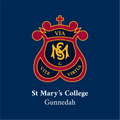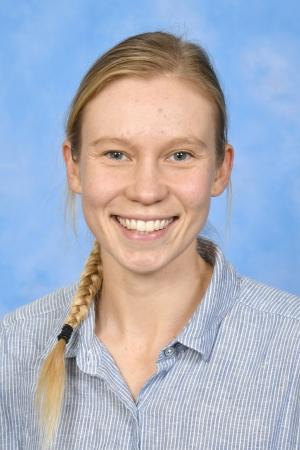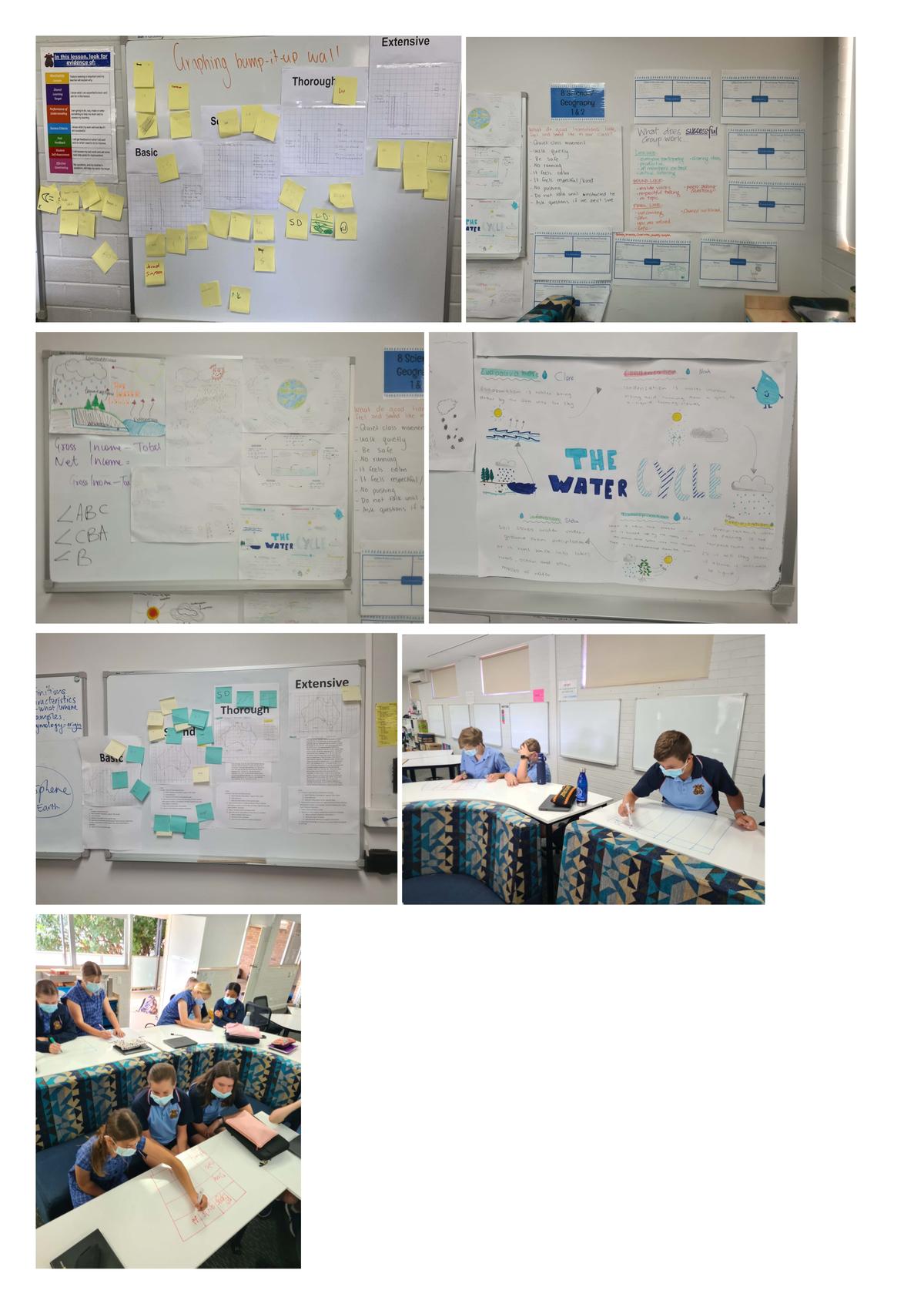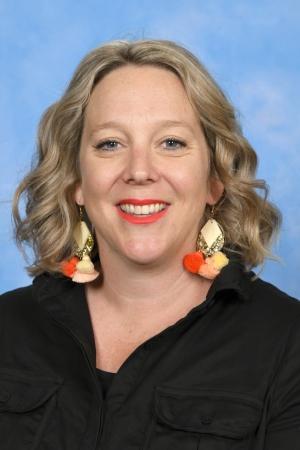Pedagogy & Literacy
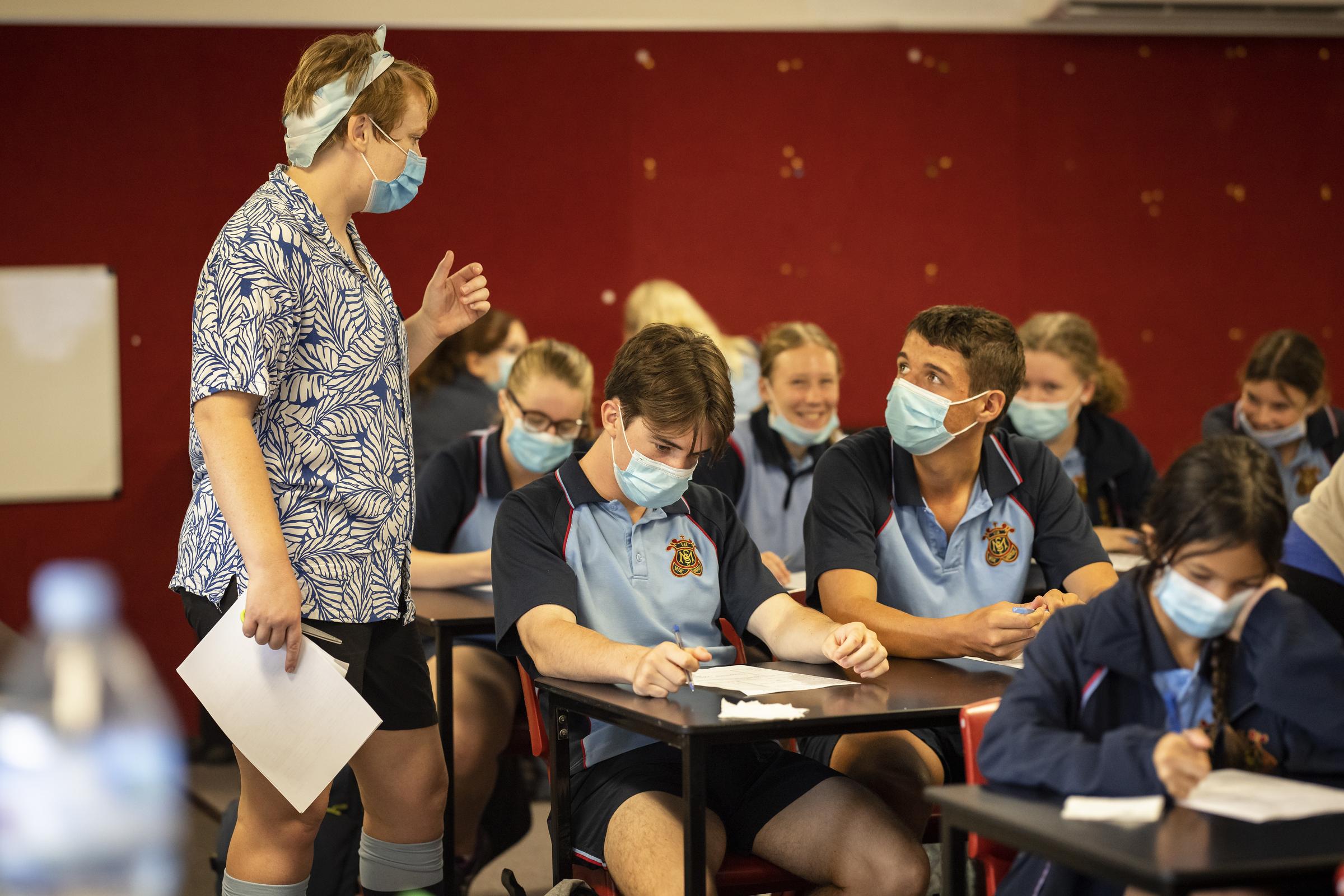
Cross-Curricular Collaborative Teaching and Learning - Genevieve Vickers (Leader of Pedagogy)
This term Geography and Science teachers have teamed up to focus on students’ skills and content development that are common across both subjects. The unit name is, “Wondrous Water” where students learn about water processes, how water can impact the environment, and solutions to water scarcity or water stress. The literacy coach and I have been supporting these teachers to implement high-impact strategies with a cross-curricular collaborative learning focus.
Some of the main skills and teaching strategies we have incorporated in the classroom include; collaborative learning, goal setting, self, and peer assessment, accountable talk, co-constructing success criteria, explicit teaching of vocabulary & writing, and project-based learning. Having four teachers collaborate on this project has meant that we are learning from each other and have worked together to address student needs in the classroom. Below are quotes from those involved in the project and their experiences and some of the work students have been producing.
“In the cross-curricular class, it has been quite beneficial working with students focusing on numerous skills and developing confidence in both course work and social skills. Students have greatly improved their geographical skills, such as mapping. A large part of this is contributed to the peer support that is provided within this class, and the collaboration students are participating in”
- Melinda Mumford (Geography teacher)
“It has been good to be able to spend more time working with individual students as there has been more class time to do this”
- Gregory Boyce (Science Teacher)
“I have been finding class enjoyable because I'm getting to know more people from different classes and have been able to build my confidence. I think this has improved my learning due to receiving different opinions from my classmates and learning new things.”
- Gracie-lee O'Donnell (student)
“In my HG/ SCIENCE class I have been learning about the water cycle and its properties. I have really enjoyed learning about the water cycle. The larger class size has been challenging with the noise but this also means there are more students collaborating and learning from each other. This subject has improved my knowledge on the water cycle, and the other learning activities such as graphing and how to make a table accurately. I think I could go that bit further and get to learn even more about the water cycle and also the Atmospheric hazards. I really enjoy learning about the atmosphere and its hazards because I already had some really great knowledge.”
Literacy coach- Kate Walshe
Literacy development influences student success in all areas of learning at school. St Mary’s aims to develop a sustainable literacy culture within the school and ultimately produce literate graduates. This focus on Literacy skills is addressed in multiple ways. Explicit Literacy Classes are timetabled in Years 7 & 8. Students have the opportunity to work on fundamental skills, such as parts of speech, punctuation, reading comprehension skills, sentence structure, and paragraphing. This focus provides students with a strong foundation in explicit literacy skills to apply to their learning within all subject areas.
This term, as Literacy Coach, I have been working with individual teachers in multiple Key Learning Areas to identify opportunities for writing and developing skills in the explicit teaching of subject vocabulary. Year 8 Science & Geography and Year 10 Science (Biology rotation) have studied the etymology and morphology of key terms. This has allowed students to develop a deeper understanding of the key terminology that they need to engage with the content. Year 12 Art students have identified key terminology and co-created success criteria for successful writing in HSC art, applying this to their written responses. Students across other KLA’s have also had the opportunity to use writing scaffolds and give their peers feedback on written responses. I look forward to Term 2, beginning a new focus with our Religion Learning Area and continuing our Literacy focus across the school.
